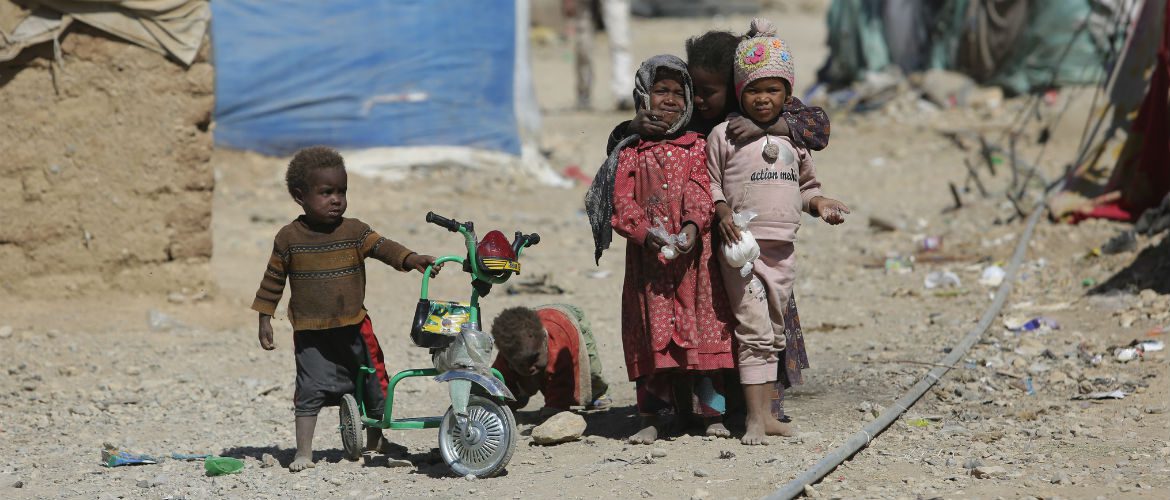
More than two years of brutal conflict in Yemen have led to what the United Nations describes as the worst humanitarian situation in the world.
Airstrikes and fighting have forced over 3 million people from their homes. 60 percent of the population — 17 million people — are suffering from food insecurity and malnutrition, with nearly 7 million people now facing the spectre of famine.
A country collapsing
The intensified hostilities across western and central Yemen continue to displace tens of thousands of people, with many now struggling to cope in abysmal conditions.
Basic services like health or water supply are collapsing. Yemeni agriculture and food production, on which 60 percent of the country relies to live, have been decimated by the conflict. At a time when people desperately need them, vital supplies can’t enter the country, as the flow of imported food has been massively disrupted.
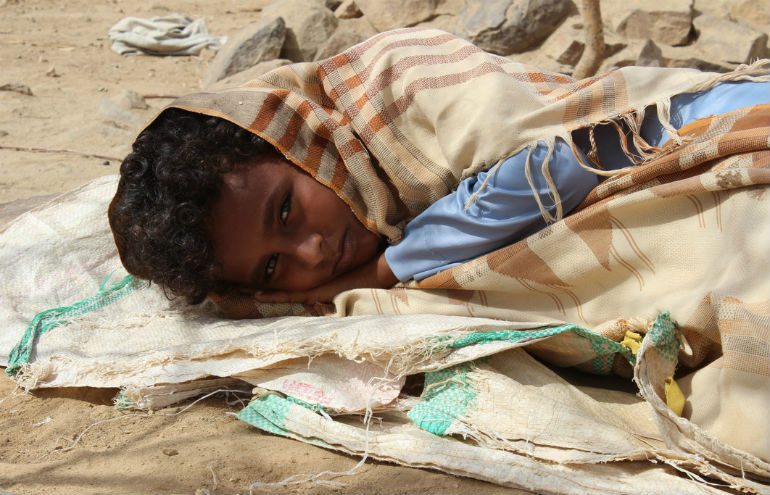
Photo: Moayed Al-Shaibani/Oxfam
When the conflict escalated two years ago, Sabeer’s family fled the war. They lost their house. Two-thirds of their 110 sheep died and they had to sell most of the others.
Sabeer’s father, Rabii Mohammed has no regular income, but he makes a couple of dollars occasionally by selling wood or helping farmers.
I can’t even give a piece of bread to my kids. I feel helpless, and food and medicine are the only things I’m dreaming about,”
Rabii received 24,500 riyals ($98) from Oxfam’s Unconditional Cash Transfer program in Hajjah governorate, which helped him, at least for now, to buy enough food for his entire family. For many displaced families, it is the only source of support they’ve received for the past two years.
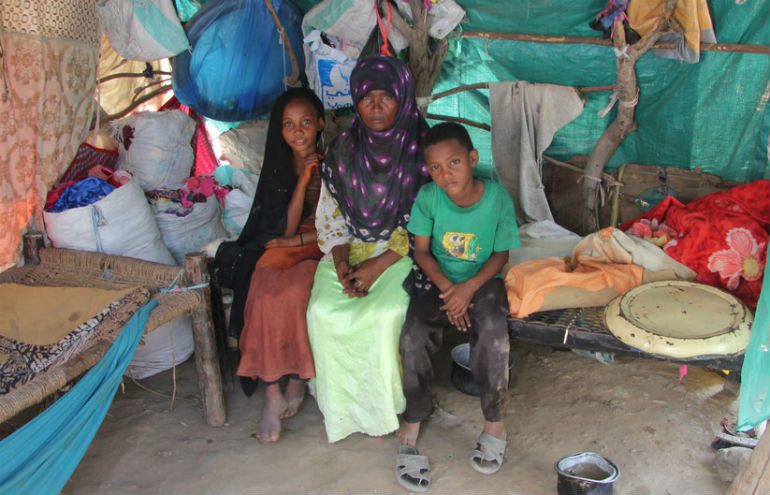
Photo: Oxfam
Nemah’s family now live in a small tent that they built themselves, which barely protects them from the cold and the weather.
Before the war, Nemah’s husband was working in Harad market and enjoying a good income. Now he stays in the tent while Nemah goes begging in the streets and other villages, which is the main way for them to get food.
“When I go out to beg and people do not give me anything, I remind myself that actually the situation is bad for everyone. But when I realize that I’ll go back home without anything for my kids, I feel helpless,” said Nemah.
Unable to buy food or medicine
Even when food does reach the shops and market stands, too many Yemenis cannot afford to purchase what they need to survive. Families who were forced to flee have lost everything they had. Costs have increased sharply while people are no longer able to make a living.
The only solution for many families is to reduce the amount of food they eat, or give what little they have to their children before themselves. Without a source of income, many families are unable to buy food or medicine, not even bread.
In the absence of a proper diet, malnutrition is on the rise, affecting about 3.3 million children, pregnant women and breastfeeding mothers.
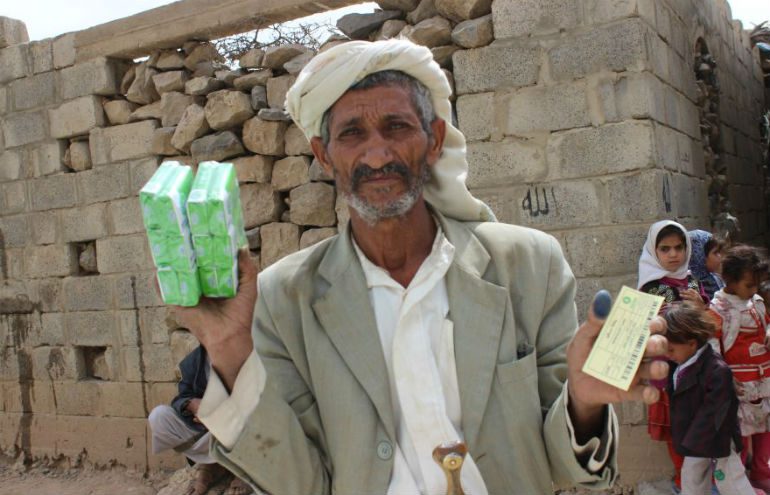
Photo: Moayed Al-Shaibani/Oxfam
As food prices went up, Yahya’s pension was no longer enough to feed his children. Then, the payments stopped, and he was forced to find another income on the side.
“My youngest son is sick, his body is weak. I went to the hospital and they told me he was suffering from malnutrition. He’s unstable and has to eat healthy food to recover. I am afraid my little son will die and I would blame myself because I couldn’t buy enough food for him.”
Until Yahya received the cash transfer from Oxfam – three monthly transfers of 24,500 YER each ($98), he was even thinking of selling his kidney to help his family. Now he only wishes for the war to stop and food prices to reduce so poor people can survive.
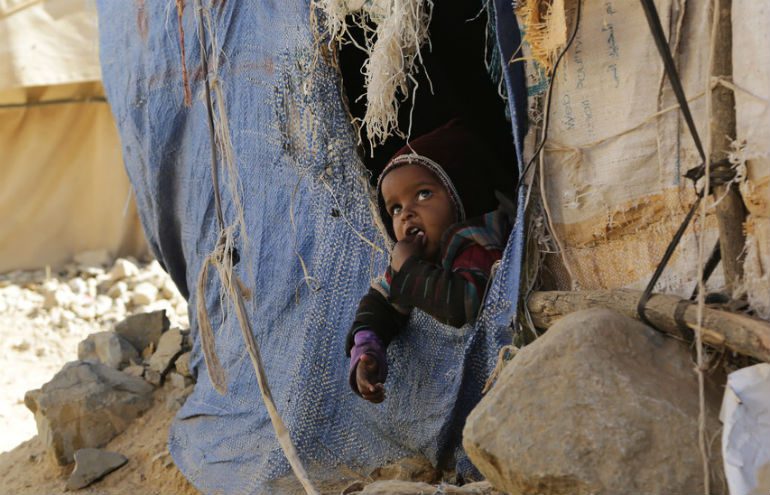
Photo: Moayed Al-Shaibani/Oxfam
Ali’s family had to flee their home and they now live in the Huth camp for Internally Displaced Persons (IDPs), in Amran governorate.
Among the 2 million of internally displaced people in Yemen, 55% are children. Many are suffering from severe malnutrition.
Oxfam has been working in the camp since late 2015, providing humanitarian assistance to displaced people with safe drinking water and other lifesaving humanitarian aid.
We are also providing over 205,000 people in Al-Hudaydah, Amran, Hajjah and Taiz governorates with cash to enable families to buy food in the local market or livestock so they get a possible source of income, including 35,000 individuals who took part in our cash for work programs.
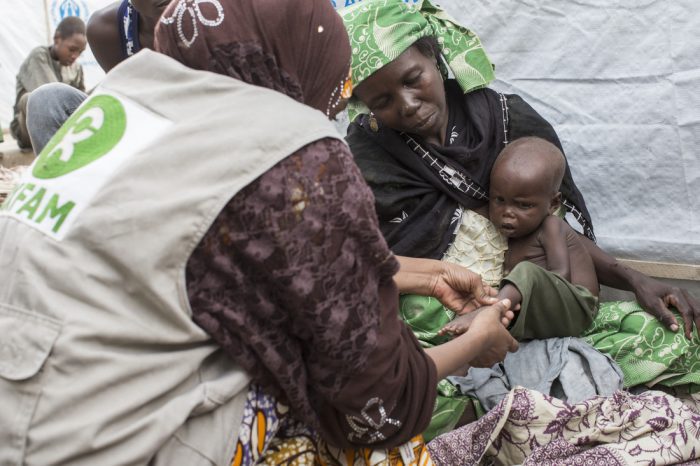
Global hunger, famine and food security
Around the world, one country is in famine and three others are on the brink — unprecedented in modern times. We must end this crisis now before more innocent women, men and children starve.